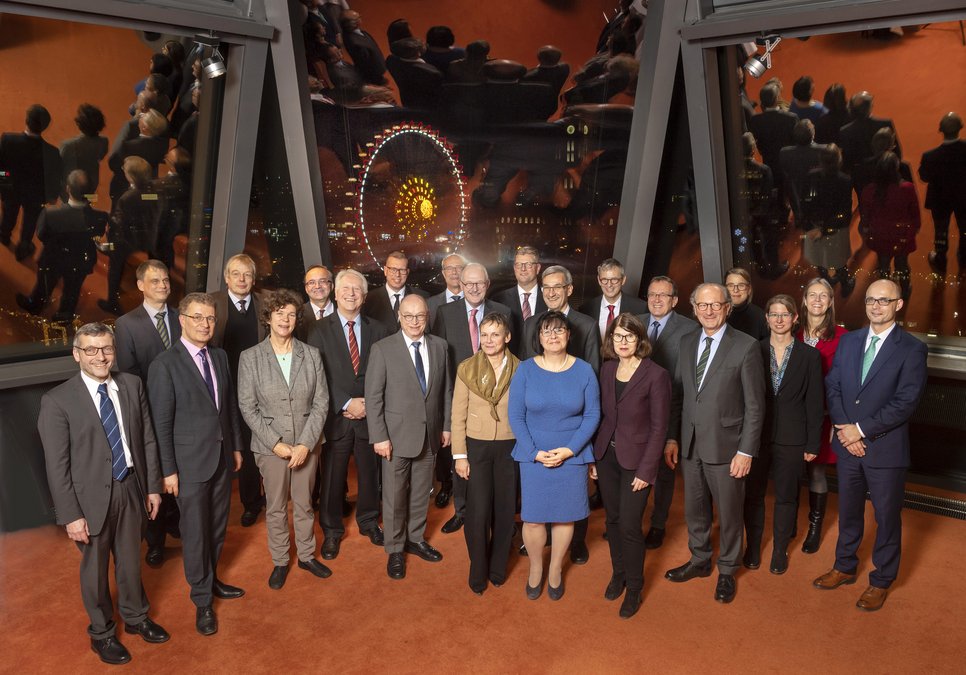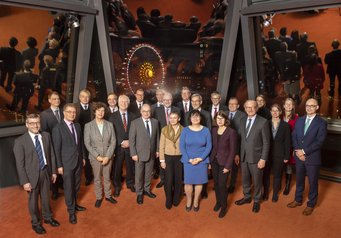Cooperation agreements signed for Max Planck Schools
On 12 December, the partners of the three Max Planck Schools signed their cooperation agreements in Berlin: Numerous universities under the umbrella of the German Rectors' Conference, the Max-Planck- and Fraunhofer-Gesellschaft, Leibniz- and Helmholtz-Gemeinschaft will be cooperating closely in this pilot project. “With this joint initiative, we want to compete directly with universities like Oxford and Harvard,” President Martin Stratmann said at the contract signing.

The cooperation agreements set out the legal basis for the collaboration during the five-year pilot phase. The agreements were initially negotiated with the so-called “major” Partner Institutes, because these will be playing a key role in the teaching and learning concepts of the individual schools. Further partner organizations will sign the contracts at the start of 2019.
The initiative will be supported by the Federal Ministry for Education and Research with EUR 45 million until 2023. “The Max Planck Schools are a new component to bring together excellent teaching and cutting edge research,” Parliamentary State Secretary Michael Meister emphasized. Beate Schücking, President of Leipzig University, said: “We have found an intelligent solution to bundle excellence in Germany.” The aim is for this network to increase the visibility of German science in international competition in order to attract excellent junior scientists from across the world.
Depending on the applicants’ prior qualifications, so-called “direct track” doctorates are to become available at the Max Planck Schools: By taking part in an integrated Master’s phase (the so-called “initial phase”), students can join the Max Planck Schools directly after their Bachelor’s degrees. By offering the “direct track” model as well as attractive remuneration (up to EUR 1,665 a month during the initial phase and a full Collective Wage Agreement for the Civil Service (TVöD)/TV-L E13 role during the second phase after completing the Master’s), the Max Planck Schools also want to make a contribution towards developing the German science system.
The initial application phase for the three Max Planck Schools – Cognition, Matter to Life, Photonics – will be running until 15 December 2018. The second round is expected to start in January. First students will be joining in September 2019.
The initiative will be managed jointly by the Max-Planck-Gesellschaft, the German Rectors' Conference, the research facilities Fraunhofer-Gesellschaft, Leibniz- and Helmholtz-Gemeinschaft as well as numerous German universities.
